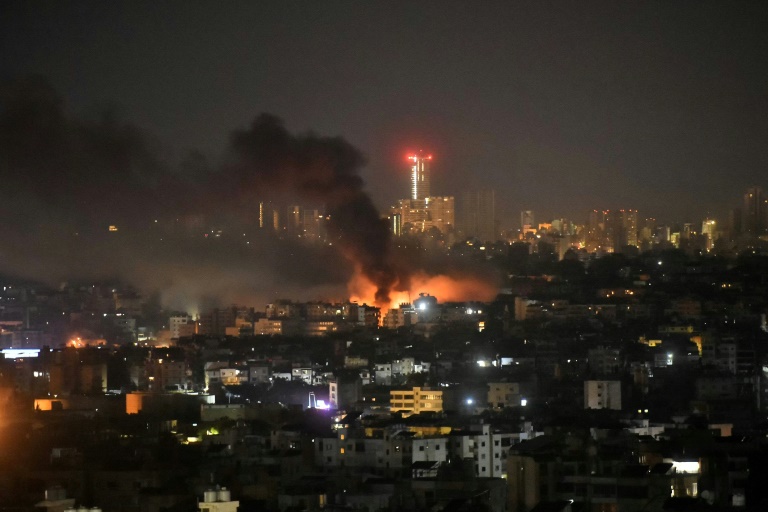Israel launched air strikes on Hezbollah’s primary stronghold in south Beirut early Thursday, including one strike reported near Lebanon’s only international airport. This escalation comes in response to recent missile attacks by Hezbollah targeting Israeli military sites, including one aimed at Ben Gurion International Airport.
The pre-dawn strikes are part of a larger military campaign that has intensified since late September, when Israel redirected its focus from the ongoing conflict in Gaza to threats along its northern border with Lebanon. On Wednesday, the Lebanese health ministry reported that Israeli airstrikes in the Bekaa Valley and the historic city of Baalbek resulted in at least 40 casualties.
Israeli Prime Minister Benjamin Netanyahu’s recent talks with U.S. President Donald Trump reportedly focused on the “Iran threat,” highlighting the regional implications of Hezbollah’s actions. Iran, a significant supporter of Hezbollah, has been accused of providing the group with advanced weaponry, complicating the security situation in the region.
In retaliation to the Israeli strikes, Hezbollah has pledged to respond, raising fears of a wider conflict that could engulf the region. The group has reiterated its commitment to defend Lebanon against what it calls Israeli aggression, which has notably increased in recent weeks.
As tensions rise, the international community is closely watching the situation, with various global leaders calling for restraint. Analysts caution that ongoing hostilities could destabilize an already volatile region, potentially leading to broader military engagements involving multiple state and non-state actors.





